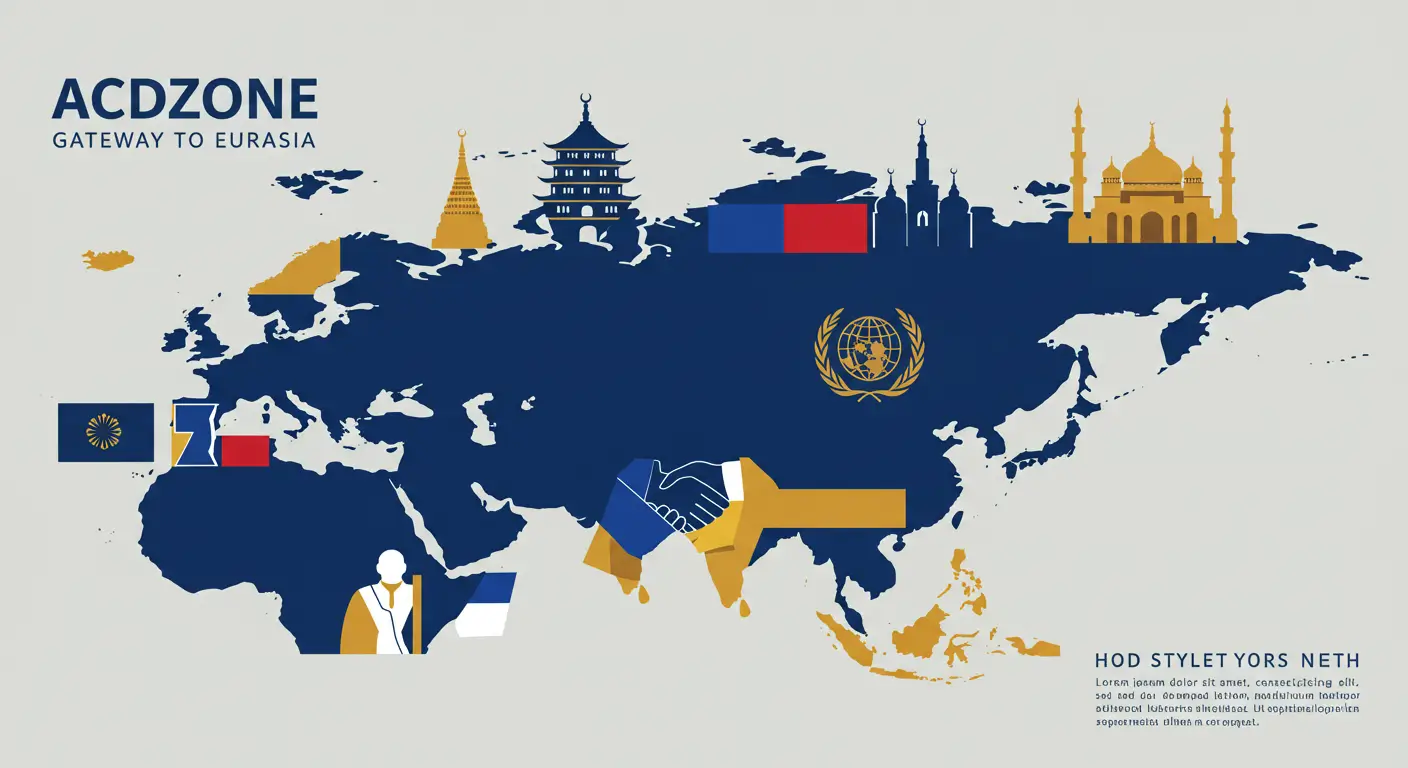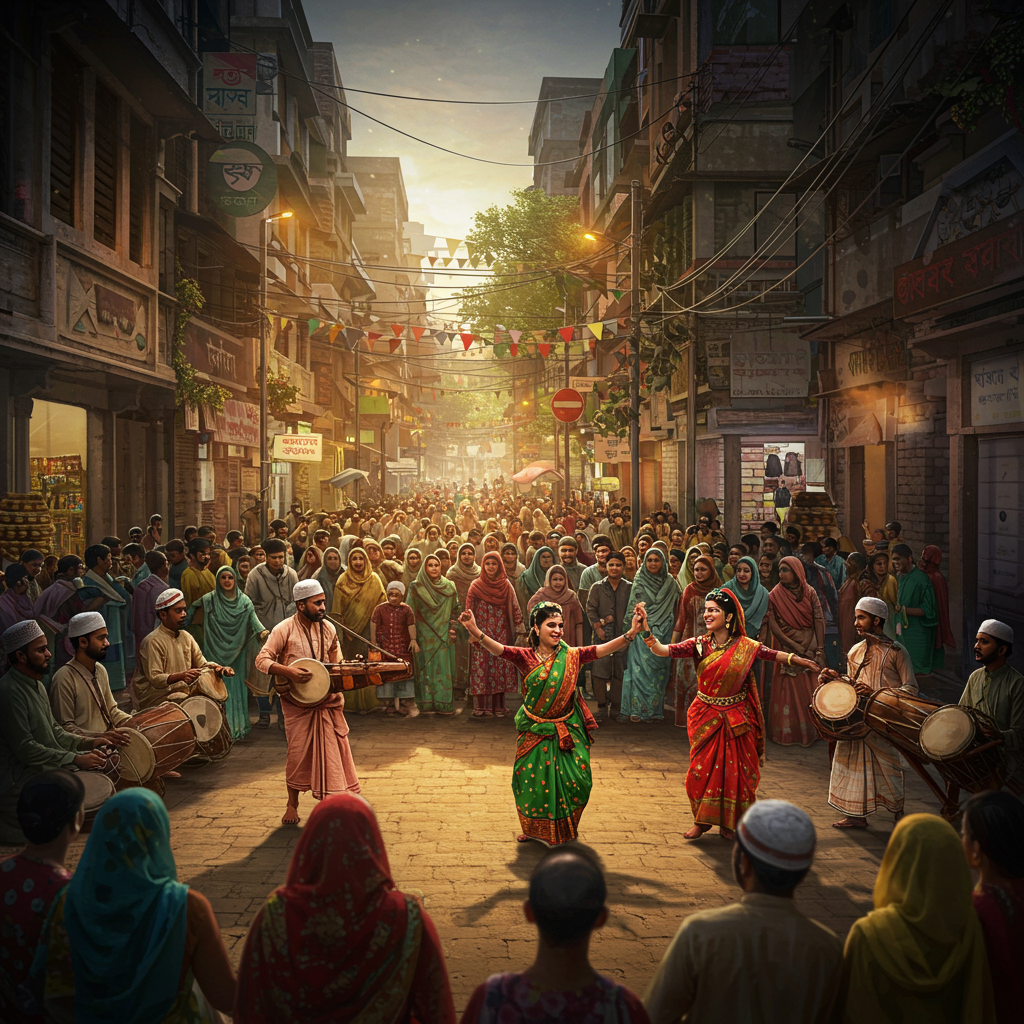Festivals and Celebrations in Bangladesh: Cultural Heritage, Tradition, and Social Cohesion
From the bustling streets of Dhaka to the tranquil villages of the Ganges Delta, Bangladeshis celebrate their culture and history through music, dance, and traditional rituals.
Bangladesh is a country with a rich history and remarkable cultural diversity, where festivals and celebrations reflect daily life, family values, and social cohesion. Festivals are not merely entertainment; they serve as a platform to display cultural identity, pass traditions to future generations, and connect different communities.
Bengali New Year, Islamic and Hindu religious festivals, and traditional local events each offer unique experiences of Bangladesh’s history, art, and society. Streets, temples, mosques, and public squares turn into colorful stages of joy during these celebrations, with music, dance, and local cuisine playing central roles.
Beyond entertainment and cultural significance, festivals also boost tourism, strengthen local economies, and showcase the hospitality of the people. Children and youth engage in these events from an early age, gaining familiarity with cultural identity and social values, fostering collective community spirit. This article explores the festivals and celebrations of Bangladesh, their historical roots, organization, public participation, and social and economic impact.
1. Bengali New Year – Pohela Boishakh
One of the most significant national celebrations in Bangladesh is Pohela Boishakh, the Bengali New Year, celebrated on the first day of the Boishakh month. Streets come alive with color, music, and dance, as people wear traditional vibrant clothing. Local markets feature handmade crafts and traditional foods. Beyond its cultural symbolism, the festival showcases local arts, crafts, and cuisine, strengthening intergenerational connections.
2. Islamic Festivals – Eid al-Fitr and Eid al-Adha
Eid al-Fitr and Eid al-Adha are the most important Islamic religious celebrations in Bangladesh. People conclude the Ramadan fasting month with prayers, charity, and family gatherings. Eid al-Adha involves animal sacrifices, distribution of meat to family and the needy, and communal gatherings. Beyond religious significance, these festivals emphasize social cohesion, generosity, and hospitality, fostering community interactions.
3. Hindu Festivals – Durga Puja and Diwali
Hindu festivals such as Durga Puja and Diwali are integral to the culture of the Hindu minority in Bangladesh. Durga Puja features decorated idols and temples, music, dance, and religious rituals. Diwali, with illuminated homes and thanksgiving ceremonies, symbolizes the victory of light over darkness and good over evil. These festivals foster communal participation with neighbors and friends.
4. Local and Traditional Festivals
Bangladesh hosts a wide variety of local festivals. Events such as Noboran in rural areas, harvest ceremonies, and fishing or handicraft festivals reflect indigenous traditions and the importance of nature in daily life. These events also have social and economic significance, attracting tourists and activating local markets.
5. Role of Music and Dance in Festivals
Traditional music such as Baul and Karnakali and folk dances are integral to celebrations. During festivals, local musical groups, songs, and dance performances narrate historical stories and myths, strengthening intergenerational and intercultural connections.
6. Social and Economic Impact of Festivals
Festivals and celebrations, besides cultural aspects, boost tourism, strengthen local economies, and generate employment. Temporary markets, handicrafts, local cuisine, and urban and rural tourism provide significant income for communities. These festivals also enhance social cohesion, youth engagement, and the preservation of cultural identity.
Conclusion
Festivals and celebrations in Bangladesh reflect the country’s culture, history, and social cohesion. From Bengali New Year to Islamic, Hindu, and local festivities, each event provides a unique experience of national and cultural identity. Beyond spiritual and recreational aspects, festivals play a key role in economic development, tourism, and community strengthening. Participation across generations, music, dance, traditional attire, and local cuisine demonstrate the connection between past and present, tradition and modernity, and culture and economy.





No comment